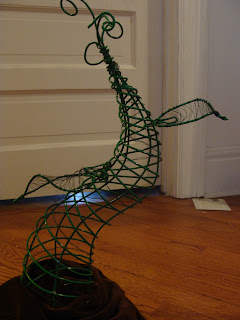Because of this, I used to think about each thing individually. For each issue, I would figure out what I thought and move on to the next one. What I knew, but didn't realize, is that these issues all interconnect. If I come across new ideas and they change my view point on one thing, then other things might change as well.
This makes me want to spend hours just sitting and thinking about what I believe and how that affects my position on various subjects.
In Zen and the Art of Motorcycle Maintenance this changing of ideas and positions has been an ongoing theme throughout the book. The narrator starts with one view and then narrows it down, discovers new aspects or ways of thinking about it, changes views because of this new information, and discovers new aspects again. He is not afraid to find a new viewpoint that might be better.















